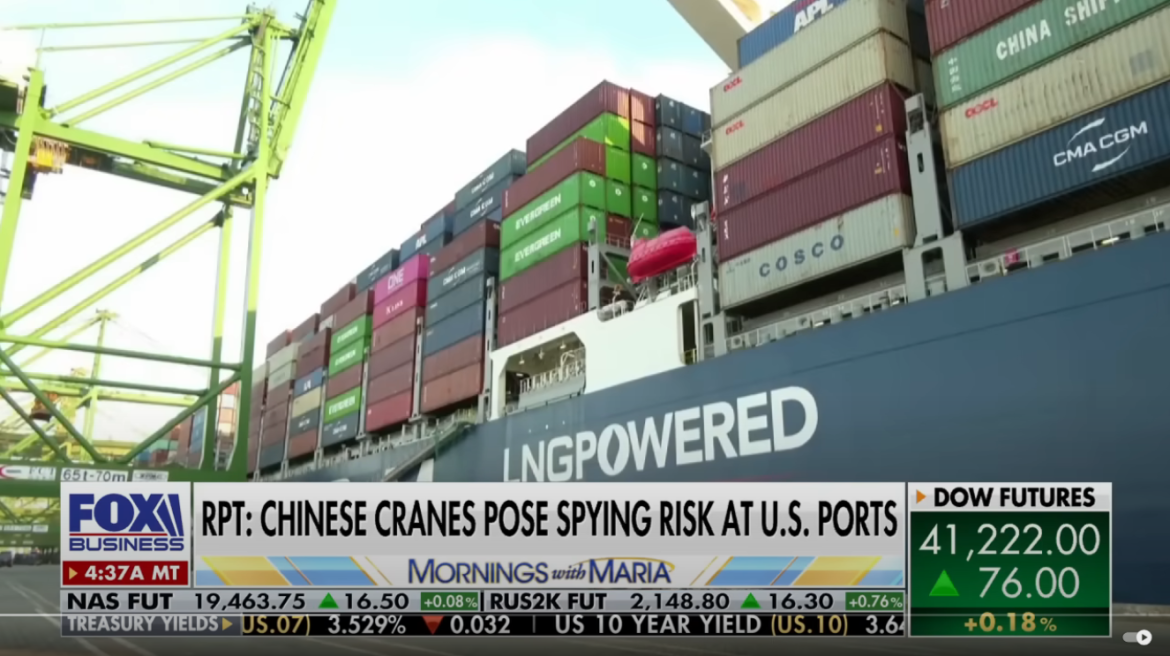China’s rising geopolitical aggression and its economic impact are becoming increasingly serious, warns Jonathan D.T. Ward, founder of the Atlas Organization. As global tensions between the United States and China deepen, Ward stresses that the situation is set to worsen, with economic, security, and political ramifications reverberating across the globe. His remarks come as a new report suggests that Chinese-made cranes at U.S. ports may pose a significant national security risk, raising concerns over potential espionage and supply chain vulnerabilities.
Ward, a leading expert on China, notes that Beijing’s growing assertiveness is being felt on multiple fronts, from its military posturing in the South China Sea to its economic leverage over key global industries. “This is going to get more serious,” Ward warns in a recent interview, pointing to evidence that China is increasingly using its commercial relationships to gain a strategic advantage over the United States.
A recently published report highlights a troubling new dimension of China’s influence: Chinese-manufactured cranes used in major U.S. ports may serve as tools for surveillance. These cranes, manufactured by ZPMC, are responsible for a substantial portion of global port infrastructure and are seen at many U.S. ports. Intelligence officials and defense experts warn that the cranes could be equipped with sensors or software that allows China to monitor U.S. supply chains and track the movement of sensitive military equipment or commercial goods.
Ward describes this development as part of a broader pattern of Chinese state-backed companies infiltrating critical industries around the world. “What we’re seeing is an expansion of China’s industrial and military capabilities, embedded within global infrastructure in ways that threaten not just economic stability but national security,” he says. “It’s part of a larger strategy to outmaneuver the United States, not just economically but strategically.”
The security concerns come as U.S. companies operating in China face a dramatic downturn in profits. According to recent data, U.S. corporations are hitting record-low profits in China, with many companies reporting steep declines in revenues due to rising trade tensions, regulatory barriers, and China’s increasing favoritism toward domestic firms. These economic struggles, combined with a more hostile regulatory environment, have caused several U.S. businesses to reconsider their long-term commitments in the Chinese market.
Ward points out that China’s tightening grip over foreign companies is a direct consequence of its efforts to become less dependent on foreign technology and capital. “China is pushing aggressively for self-reliance while using foreign companies to fuel its own technological and economic ambitions,” Ward explains. “What we’re seeing is a deliberate strategy to squeeze out competition while gaining leverage over global markets.”
The Biden administration is already taking steps to counter China’s growing influence, with new measures aimed at curbing Chinese investment in key sectors and limiting the export of sensitive technology to China. However, Ward believes that more decisive action is needed, especially as China ramps up efforts to dominate critical industries, including semiconductors, telecommunications, and clean energy.
The report on Chinese cranes, combined with the broader economic and geopolitical challenges posed by China, has triggered calls for a stronger U.S. response to safeguard both its infrastructure and its economy. U.S. officials are considering a range of options, from increasing port security and conducting more rigorous inspections of Chinese-manufactured equipment to introducing stricter regulations on American companies doing business in China.
As the U.S.-China rivalry intensifies, Ward underscores the need for vigilance and preparation. “We’re facing an era of great power competition,” he says, “and if the U.S. doesn’t take proactive steps to defend its interests, we could see a significant shift in global power dynamics.”



